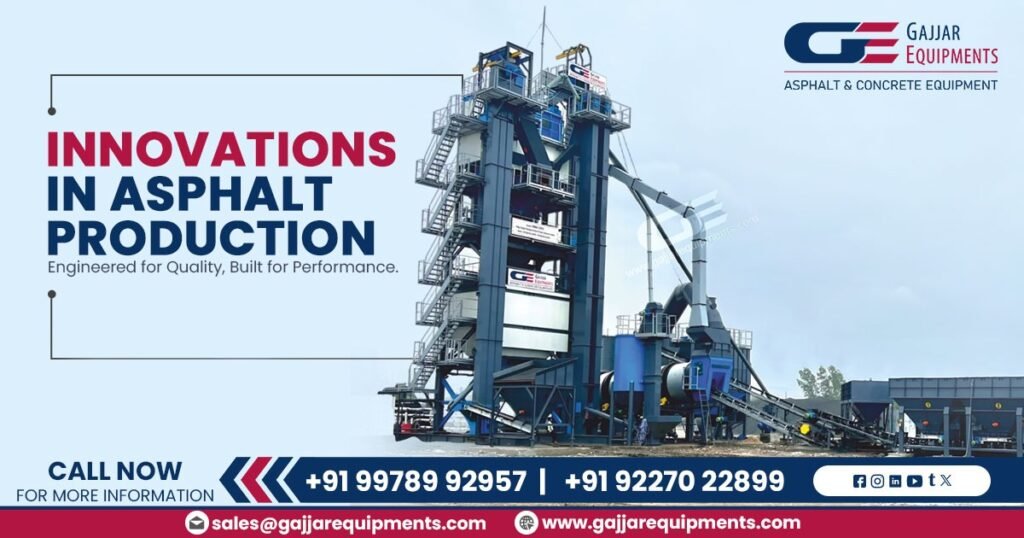The asphalt industry is undergoing a digital revolution with advancements in robotics, machine-to-machine communication, sensors, big data, AI, and electrification. These technologies boost production efficiency and reduce environmental impact.
They also enhance health and safety at construction sites, ensuring compliance with Global regulations. For the first time, producers and contractors can offer high-quality customer experiences throughout the road’s service life in a smart, connected way.
Hot mix asphalt demands the seamless coordination of all road construction stakeholders—including mixing plants, delivery, paving, and compaction—to minimize temperature losses throughout the process. This need for collaboration has accelerated the adoption of digital technologies in the asphalt sector, making it a pioneer in construction digitalization. Consequently, the asphalt industry is now a benchmark for digital transformation in construction.
Maximizing productivity and product quality while minimizing environmental impact is the biggest challenge for asphalt plants today. Over the past few years, innovative control technology and IT have significantly boosted efficiency and quality control. Key innovations include:
SMART ASPHALT BATCH MIX PLANTS
Connectivity: Modern web technologies and advanced software architecture enable operators and plant managers to access vital process data—such as production protocols, plant statistics, customer orders, temperature, and energy consumption—remotely via the internet.
Cold Feeding: Utilizes a graded start-up control system to create optimal material spread with an automatic sand advance function. Allows for unlimited cold feeding recipes, adjustable with a mouse click (proportions/capacity/quantity/speed).
Drying and Dedusting: Features fully automatic burner control for consistent mineral temperatures and negative pressure regulation. Sensors monitor material, raw gas, and cleaned gas temperatures, which are visualized for burner diagnostics.
Weighing and Mixing: Employs dynamic inflight correction based on flow measurement for all components, with self-learning automatic correction. Offers automatic optimization and tare functions for the aggregate-to-bitumen ratio, and precise batching for small quantities. Digital tools streamline the creation of weighing orders, vehicle weighing, and delivery note generation, reducing administrative tasks and costs.
Bitumen Storage Tank: Fully integrates electrically heated bitumen tanks (for filling, circulation, transfer, mixing, and evacuating) with temperature regulation and programmable timers for heating.
Loadout Bins: Automatically controls loading bins with programmable switchover when the target bin is full, including integrated heating and load temperature display. Digital tools provide additional details such as timestamps of the last filling and takeout, silo content, and last loaded quantity, enhancing efficiency and safety while reducing costs.
Traffic Control: Large alphanumeric displays signal loading sequences, and card-based identification systems with touch panels aid self-registration upon arrival, optimizing process flow and reducing radio communication and traffic jams at the weighbridge.
Peak Load Management: Digital tools monitor peak performance, predicting peak tariff timings to reduce energy costs. Systems automatically manage certain devices (e.g., heating) based on forecasts, preventing costly electrical peak loads.
Integrated Maintenance Management (IMM): Supports plant operators with planning cyclic maintenance tasks and other related events, effectively allocating maintenance costs and assigning detailed multimedia work instructions.
The asphalt industry is embracing a digital revolution, enhancing efficiency, sustainability, and safety. With cutting-edge technologies, asphalt plants are setting new benchmarks in productivity and quality. Embrace these advancements with Gajjar Equipments Pvt. Ltd. to future-proof your road construction projects.








